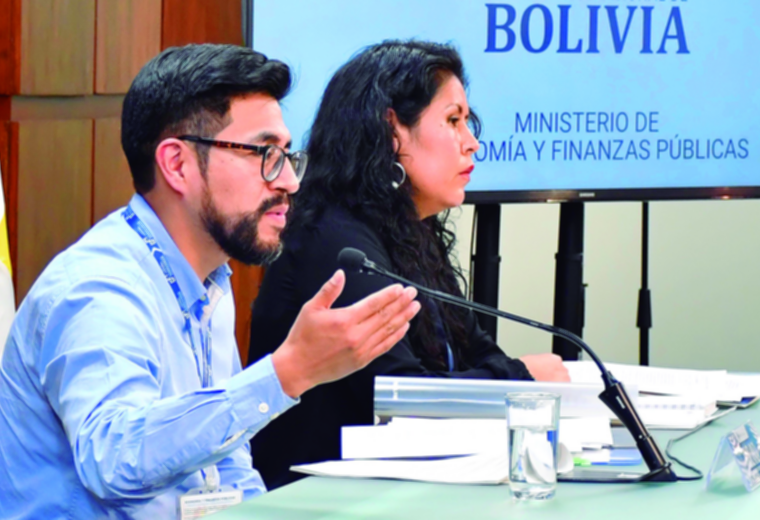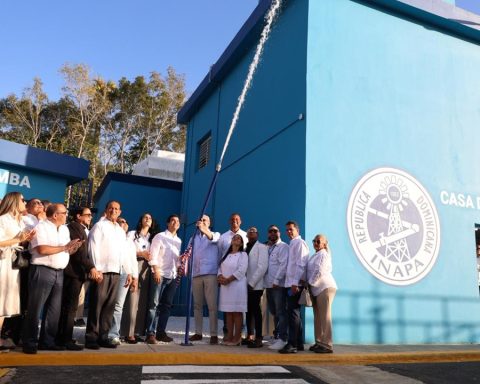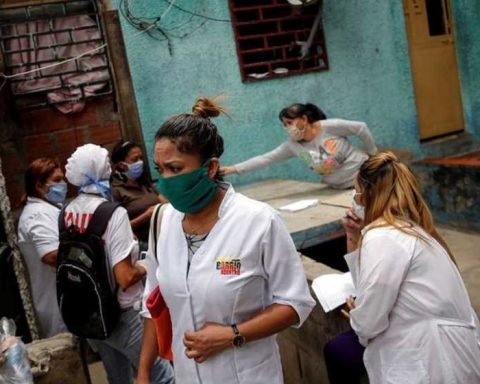April 7, 2023, 4:00 AM
April 7, 2023, 4:00 AM
The Government promulgated on Wednesday, surprisingly, decrees related to the fight against the legitimization of illegal profits and terrorism that provides for the “immediate” freezing of assets derived from illicit proceeds of people who are on the list of the United Nations Security Council.
The measure was approved, according to the Government, before the upcoming visit of the Latin American Financial Action Group (Gafilat). The executive explained that the decrees do not invalidate bill 280 against money laundering that it is paralyzed in the Legislative Assembly and that it seeks greater consensus in the social sectors to modify six crimes of the Penal Code.
The first norm enacted is Supreme Decree 4906, which modifies article 1 and adds another four to Supreme Decree 1553 of 2013, signed by former President Evo Morales.
“This procedure of Immediate freezing of assets applies to those people who are wanted internationally for crimes of terrorism. This aspect is already provided for in Law 262 and the decree comes to regulate the law. We are guaranteeing this procedure that as a State we must comply with. This decree will not affect the union family because the people who carry out economic activities in the formal or informal sector are not on the lists of the United Nations Security Council”, explained the interim Vice Minister of Pensions and Financial Services, Franz Apaza.
The legal incorporation that triggered the alarms of the population is article 8 of Supreme Decree 4906 on Application of the preventive freezing measure that states: “The preventive freezing measure of funds or other assets, It will be applied immediately from the knowledge of the lists of the Security Council of the United Nationsaccording to Article 4 of Law No. 262”.
The object of the regulation was also modified and states that the Supreme Decree has the purpose of regulating complementary procedures, within the framework of Law No. 262, of July 30, 2012, Regime for the Freezing of Funds and other Assets of Persons Related to Actions of Terrorism and Financing of Terrorism, related to the freezing and unfreezing of funds and other assets.
The previous wording stated that the purpose was to “establish complementary procedures related to the regime for freezing funds and other assets established in Law No. 262, of July 30, 2012, Regime for the Freezing of Funds and other Assets of Persons Related to Actions of Terrorism and Financing of Terrorism, for the purposes of process the lifting of the measure in cases of disaffection of people or for reasons of humanitarian need to allow the people affected by the freezing measure to cover their basic or extraordinary expenses.”
The vice minister clarified that there was a need to make modifications to the standard, since it is approaching the arrival of the Latin American Financial Action Group (Gafilat) that will make an evaluation of what progress has been made in the fight against the legitimization of illicit profits.
According to the explanation received by the union leader, Rodolfo Mancilla, in Tuesday’s meeting with Minister Iván Lima, the Gafilat evaluation will favor obtaining international loans. “We are spokespersons and as spokespersons there is an institution called the FATF that constantly makes evaluations in various countries of the world and this also facilitates the credits that countries can obtain. That is understandable”, he maintained and explained the reasons why the Government is interested in making bill 280 on the anti-legitimization of profits viable in the Assembly.
Since February, MAS hastened the approval of at least six credits for investment projects and programs in the country. The Planning Commissions of Deputies and Senators, separately, approved five bills for more than $us 279 million and one of 200 million euros. However, they are still stuck in the Senate due to the division of the ruling party that is trying to cope with the economic difficulties due to the collapse of the currencies and reserves of the Central Bank of Bolivia (BCB).
Added to this are the different international ratings for the Bolivian economy. On March 24, Moody’s Investors Service agency downgraded Bolivia’s rating as a long-term issuer in local and foreign currency warning of a vulnerability that threatens macroeconomic stability.
“The untenable defense of the exchange rate parity with the US dollar has caused the stock of foreign exchange reserves to from the central bank has fallen significantly since the beginning of the year”, the financial report states.
Among the rationales for lowering the ratings, the firm Moody’s notes large fiscal deficits and continued rise in public debt.
Regarding decree 4906, constitutional lawyer Carlos Börth explained that the standard has to do with compliance with international conventions regarding the lists issued by the United Nations office and does not apply to any case.
“The United Nations prepares lists of people who are involved in terrorism and the countries that have signed the agreement can apply internal provisions such as freezing assets. It is not that Bolivia itself applies that, but it must wait until it enters the organization’s rosteror”, clarified the lawyer.
What causes the suspicion of the trade unions is that the vice minister affirmed that This decree is the regulation of Law 262, when 11 years have passed for the Government to formulate a regulation that usually takes three months to be prepared or 180 days, in the worst case.
From the reading of the deputy Luis Nayar, from Comunidad Ciudadana, the decree is due to the rejection of project 280 and that now the president together with his ministers “seeks to carry out the freezing of citizens’ accounts that are supposedly linked to the criminal offense of terrorism”.
“The underlying issue is that they are seeking to appropriate the citizen’s assets, of sacrifice, work and the hours of delivery of each human being to seize their goods. It is not enough for them to squander public funds and now they seek to keep the assets and money that people have collected,” said Nayar.
Ivan Lima, Minister of Justice, ruled out that the new decree will replace bill 280 whose treatment was paralyzed in the Legislative Assembly due to the discontent of the population with the modifications to the crime of terrorism and due to the fear that an attempt would be made to “criminalize” social protest.
“A decree can never change a law. The project that is frozen while we do the socialization process can only regulate modifications to the Criminal Code and the Code of Criminal Procedure,” he reported.
Senator Félix Ajpi, from the MAS renewal bloc, supported the decree freezing assets and ruled out that it is a dictatorship because it must be “put order against ill-gotten money”.
On the subject, the deputy of the Evista bloc Freddy López pointed out that the Government not having a legislative agenda proposed by the vice president resorts to “impositions from the executive part” without consensus with social organizations.
“The people are wise and will ask for explanations because we cannot act as they are acting and make by decree some rules that harm the population. I think that what is happening is that there are impositions from the executive part and I am sorry for some ministers who are not collaborating with the president,” López said.
Regulations to the FIU
Another regulation signed by President Luis Arce is Supreme Decree 4904 that regulates the organization, powers of the Financial Investigations Unit (UIF), the regime of administrative offenses and the procedures for the imposition of administrative sanctions; and define general elements on the preventive measures applied by the Obliged Subjects regulated by this entity.
within its powers The FIU may “regulate the prevention and fight against the legitimization of illegal profits, financing of terrorism and the financing of the proliferation of weapons of mass destruction, in consultation with the Ministry of Economy and Public Finance and the supervisory authorities”, indicates subparagraph a of article 10.
Also, it is established that the FIU shall cooperate, upon request or spontaneously, with financial intelligence units or other international authorities analogous for the exchange of information related to the legitimization of illicit profits, financing of terrorism and financing of the proliferation of weapons of mass destruction and other derivatives within the framework of its competence, even indirectly, refers to subparagraph f of the regulations.

















